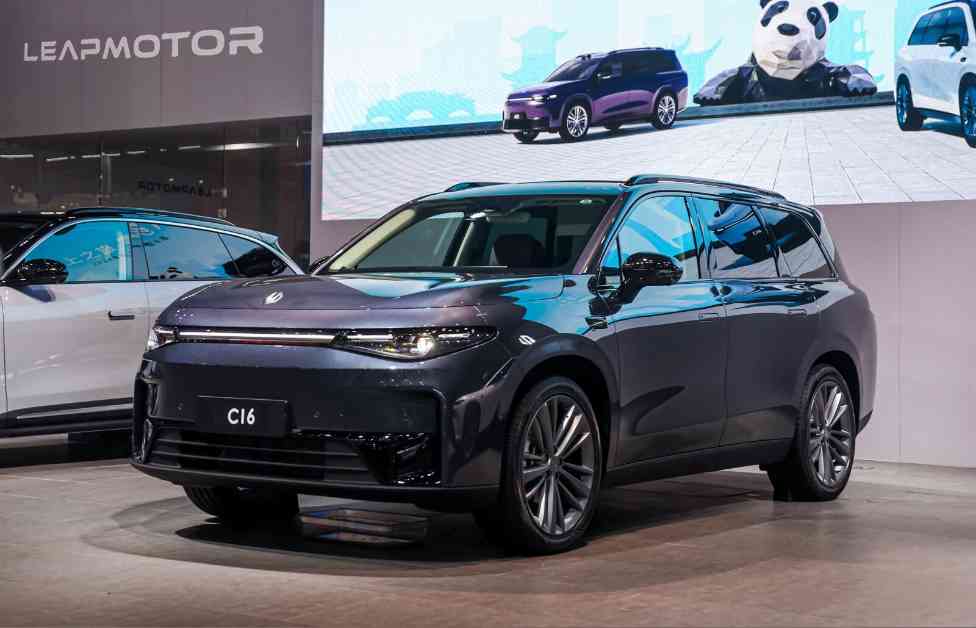Huawei EV Sales Decline as BYD, Geely, and Leapmotor Demand Surges
The electric vehicle market in China witnessed a significant shift in August 2024, with Chinese automakers BYD, Leapmotor, and Geely-owned brand Galaxy experiencing record-breaking sales. This surge in demand can be attributed in part to government stimulus measures aimed at boosting the adoption of electric vehicles. On the other hand, sales of Huawei-backed EV brands saw a sharp decline during the same period.
Leapmotor, one of the key players in the Chinese EV market, showcased its C16 sports utility vehicle at the Chengdu auto show in Sichuan on August 30, 2024. The company’s C16 SUV has been gaining traction in the market, with more than 8,000 units sold in August alone. This success has propelled Leapmotor to surpass the 30,000 units sold milestone for the first time since its inception.
Geely’s Galaxy brand also saw a significant increase in sales, with 26,510 units sold in August, representing a 58.7% growth from the previous month. The introduction of the E5 all-electric compact crossover, equipped with the innovative Flyme Auto in-car operating system, played a crucial role in driving this sales surge. The E5 is priced competitively between RMB 109,800 and RMB 145,800 until the end of September.
Meanwhile, sales of Huawei’s Harmony Intelligent Mobility Alliance (HIMA) took a hit in August, primarily due to production adjustments by its manufacturing partner Seres. Seres, along with Chery, delivered 33,699 EVs featuring Huawei’s in-car technology, marking a 25% decrease from the previous month. This decline placed Huawei’s EV sales behind its competitors like Li Auto.
In another positive development, Volkswagen-backed Xpeng Motors recorded its highest monthly deliveries in 2024, indicating a potential recovery after a period of subdued sales. The company delivered 14,036 units in August and received over 30,000 reservations for the MONA M03 sedan within 48 hours of its unveiling on July 27.
BYD, a prominent player in the Chinese EV market, achieved its highest-ever sales of 370,854 passenger EVs in August, marking a remarkable 35.3% year-on-year growth. The company introduced several new and updated models to maintain its leading position, including the facelift of the Seagull small SUV and the luxury grand tourer Denza Z9 GT. Additionally, BYD unveiled the first multi-purpose vehicle under the Dynasty lineup, the Xia, on August 30.
The surge in demand for electric vehicles in China can be attributed to Beijing’s new subsidies for consumers looking to trade in their old, less eco-friendly cars for newer and greener options. The China Passenger Car Association (CPCA) highlighted the impact of these subsidies on driving sales of new energy vehicles (NEVs), projecting a 36.6% year-on-year increase and an 11.6% month-on-month growth to reach 980,000 units in August.
With more than 680,000 applicants submitting their filings for cash incentives by August 22, the Ministry of Commerce reported a significant uptick in applications, with over half filed within the past month. These subsidies, coupled with the introduction of new and redesigned models by Chinese automakers, have significantly boosted sales in a season that traditionally sees lower demand for cars in China.
In conclusion, the evolving landscape of the Chinese EV market reflects a growing consumer interest in electric vehicles, driven by government incentives and innovative offerings from leading automakers. As companies like BYD, Leapmotor, and Geely continue to push the boundaries of electric vehicle technology, the future of sustainable mobility in China looks promising.

















